How To Protect Your Intellectual Property with Art Nutter


Intellectual property is the most valuable asset of a company that is why it should always be protected. Otherwise, employees come in and learn all your systems and processes, and then they leave. The next thing you realize, there’s a competitor down the road that is being run by that former employee. However, many companies don’t do a good job of securing their intellectual property because they don’t understand that. Art Nutter, the founder, chairman, and CEO of PatentBooks and a company called TAEUS, delves deep into the subject of intellectual property, bringing to light the significance of patents. He also shares how PatentBooks and TAEUS were created and what they are all about.
—
How To Protect Your Intellectual Property with Art Nutter
We have Art Nutter. He’s the Founder, Chairman and CEO of PatentBooks and a company called TAEUS. People will go, “PatentBooks, I got. What is TAEUS?”
People think it’s some Greek god of knowledge. I was going to invent that, but it’s an acronym for Take Apart Everything Under the Sun. That company was one that I started back in 1992 when the United States and big companies were thinking that foreign competition was copying their intellectual property. I approached AT&T one day and said, “You acquired NCR. Do you know what patents you acquired in that acquisition?” They said, “No.” I said, “I can tell you.” We proceeded to do that and turned to AT&T and then subsequently IBM into patent licensing powerhouses. IBM went from $100 million licensing income to $2 billion in licensing income over the space of ten years.”
I think about that and say, “You started TAEUS.”
Yes, I did. Out of the garage with frequent flyer miles, a laptop computer, a laser printer and that was it.
Did you have experience in patent or anything or taking things apart?
Yes, I’ve always taken things apart. We grew up on a farm. If something broke, we had to figure out how to fix it. I’ve had an inherent interest and curiosity in doing those things. However, the last job I had as an employee before I started TAEUS, I tended to get fired in most companies because I was usually the guy making too much money. That was my crime. I doubled the sales of this particular company in a space of nine months. This company was reverse engineering semiconductor memory chips. I discovered that there was a marketplace that was very interested in this reverse engineering data. That was this intellectual property marketplace because like I said in the late ‘80s, early ‘90s, US companies were thinking, “We’re getting killed by foreign competition. They must be copying our stuff, our ideas and our inventions.” In fact, they were and this was an easy way for them to document the other companies copying of their circuits. They literally would reverse engineer the circuits and then duplicate them exactly. It was government-funded in Japan and Korea and Taiwan and so forth. They wanted to establish semiconductor industries for themselves, which as from history, our semiconductor industry is pretty few and far between. You have the Intels, AMDs and in-house semiconductor capabilities but nowhere near likely the volume of semiconductor companies that did exist in here in the 1980s. Those businesses are now done overseas in Asia.
Learn all the time because you’re kidding yourself anytime you think you know everything; you’ll be blindsided.
I’m thinking about you started out with your laptop in your garage and you get called to AT&T. Walk us through the thought process of, “I’m going to start small. I’m going to start with AT&T.”
It was very straightforward. I only have so many hours in the day. I figured that if I’m going to spend my time working with one guy who has one patent or ten patents or something like that, or I can go to Ma Bell who has Bell Labs, who has 25,000 or 50,000 patents. Let’s work on those ones. It’s like the old Bonnie and Clyde stories that say, “Why do you rob banks?” They say, “Because that’s where the money is.” It’s the same thing, why do I go to AT&T? It’s because that’s where they had all the patents. I went to IBM too. In 1994, not many people know this, but Lou Gerstner had taken over the company at IBM and they were down to 30 days’ worth of cash. IBM hooked up with us and they said, “Art, we need you to go through our patent portfolio.” We read every single one of their patents and identified a bunch of patents that other people were using. Once we document that using that philosophy of taking apart everything under the sun to document the patent infringement. That was all the information that the licensing execs and patent litigators needed to convince the other side they had to pay.
For you, when you do take apart event, take apart of that it’s not physically disassembling but as also understanding the circuit boards and all that other stuff?
You have to understand what’s going on in the patent language itself? The language in a patent is at the backside of a patent. That’s what we do when we take a look at a patent. I’ll go to the last page of the patent and I go back from that back page to a paragraph that says, “I or we claim.” It’s a sentence. This is your seventh grade English teacher diagramming sentences where you diagram that sentence. You have to find each and every element of what is described in that patent in the target product. To do that, you have to have the smartest guys anywhere to find out exactly how you figure out where those elements are in that target product. We’ve ended up having to reverse engineer software circuits. Integrated circuits the size of your little fingernail. That has a million transistors on it. You’re talking about looking at those things scanning on microscopes, tunneling electron microscopes, connecting all the wires. The guy says, “Yes, that is the circuit that is described here in that patent. “Yes, there’s a match.” That’s what we do.
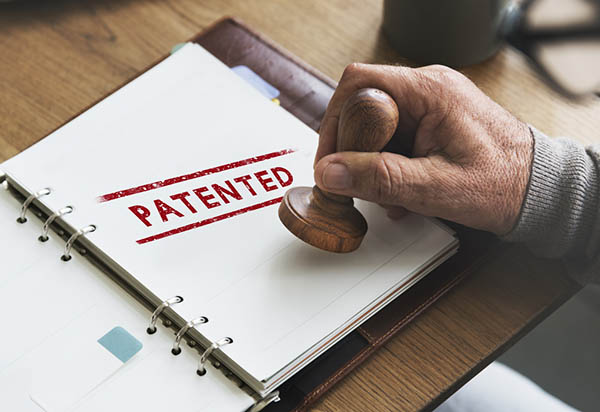 Intellectual Property: Patents these days are granted very liberally to the point where many of the patents probably should not have been granted.
Intellectual Property: Patents these days are granted very liberally to the point where many of the patents probably should not have been granted.
You started in ‘92. When did you start bringing all employees and so on?
The beauty of the TAEUS business model is that I have to have the smartest engineering resources in any particular technical discipline. What I do is I hire tens of thousands of consultants and contractors keeping my W-2 fix staff at a very minimum because these guys that know their stuff and that can answer those very difficult questions are super expensive. For the right guy, I only need him for probably four to six weeks. I’m done because I take the information that they are able to discover, map it back to the patents, deliver that report to them to our client, and that’s what they need to consummate a deal.
For our audience who is like, “I developed something. I patented it. I think somebody else is infringing on my patent.” Maybe somebody is going like, “Do I need to retain the service of TAEUS?” What does your ideal client look like?
The ideal client is somebody who thinks they have an idea that somebody is using it because I can help them. I can go up there and say, “Let’s take a look at this patent.” There are a number of different metrics that we use to evaluate the quality of a patent. I don’t want to get too much on a soapbox or a rabbit trail on this one, but patents these days are granted for all kinds of different things. Frankly, they’re granted very liberally to the point where many of the patents probably should not have been granted. In a couple of metrics, we look at those patents from a legal perspective, an engineering perspective and a business perspective to see if it’s worth doing. IBM patented how to queue up in an airplane to go to the bathroom, these are dumb patents. The ideal client here is somebody who, in my world, is somebody who has tens of thousands of patents that don’t constrain us from working for everybody else. I like spending the time with the people who have the large patent portfolios. We go through their patent portfolio, identify those patents that are most likely to be used by somebody else. We are skate raking and scaling those patents to see which ones are the ones that are the most valuable.
If you have a patent on something that’s commonly used, but lots of other ways to solve that particular problem, unlikely that there’s a high probability that when you do that investigation that you’re going to see a match because they might have done it some other way. If you were looking for those patents that that’s the only way of solving that particular technical problem and then we’re also looking at for those inventions that drive a major cost impact into that product like or the value of that product. For instance in an iPhone or iPad, the ability to have a virtual keyboard was a game-changer. Prior to that, you remember back in the old Blackberry days, you had physical keyboards, little tiny things, but those kinds of patents are very valuable. Data compression, streaming video, streaming audio, those kinds of inventions are very valuable because those allow the internet to work. Those are the kinds of patents that we investigate.
TAEUS, smooth sailing?
The technical definition of what you can patent is anything under the sun invented by man.
Not exactly. TAEUS is an adventure. I had to grow through this. I started working when I’m seven years old. I’d had various and sundry companies all the way up through my very short career at the Air Force Academy. I had been burned in some of those instances by people who stole the checkbook and wrote bad checks all over town on the company tab. I didn’t allow people to run the finance or any aspects of this. I started TAEUS in ‘92 and about probably in ‘95, ‘96, we were at $2.5 million a year. I couldn’t get much beyond that. I’d plateaued at around $2 million to $2.5 million. It took me about five or six years to grow beyond that. Frankly, I fried. I’m mentally and physically exhausted. I had to walk away from the thing. I said, “God bless you. Hopefully, I come back and you have a company.” I did at that point delegate off the responsibility of running finance, marketing, engineering and everything to everybody else.
When I came back from that six weeks, the company was doing well, much better than it was when I left. I’m like, “Note to self, you should leave more often.” I did successfully delegate that. Sure enough, we went from $2.5 million up to $5 million or $6 million in a year or two. I’m thinking, “This is great.” I needed a COO. I’m a decent peddler. I can go out and hustle up some business. I know how to model the business so forth, but on the execution side, there are people that do it better than I do. I had to go through three different COOs in one year. I got to the third guy, he was a good guy. He put a lot of discipline back into the organization and sure enough, we grew again. We’re growing like gangbusters. We went up to $10 million in sales and with great profit margins. We’re talking 70% profit margins. That enabled me to be a sugar daddy around town. That was a very significant blessing but yet, it was a calling that we had.
Before we get too far, let’s define exactly the sugar daddy because the connotations are awful.
Folks had asked us to contribute to a particular cause, capitol campaigns and those kinds of things. There’s a story of the power of prayer there. We did make a pledge to St. Mary’s High School here in Colorado Springs. They were doing a capital campaign. We made our pledge and they said, “How would you like to pay that?” I arbitrarily divide it up into three chunks of cash.” It turned out that was the largest cash donation it’s ever been made in a 125-year history of St. Mary’s High School. I didn’t know that. I came up with the number because we’d had a good year. They asked me to pay and I didn’t have the money because the company almost went out of business the next year. That’s what the devil things messing with you. I said, “Keep praying.” He said, “Are you bailing on your pledges?” “No, I’m not bailing on the pledges. I need some prayers.” We prayed. The next year comes around, the company did not go out of business and it improved. I was able to make part of the pledge but then the third year I said, “Keep praying.” The next year, they did keep praying. They came around and I was able to make good on the entire pledge that third year. There’s a stadium here in town that’s named after my mom and dad as a result of that.
There’s a bit of an addition past TAEUS. We haven’t talked about it yet, PatentBooks. Let’s talk about PatentBooks and how that came about and what it’s about?
The whole business of TAEUS is providing information to people to allow them to do efficient patent transactions. If I show up and have a patent and I hand it to you, you’re using my patent and you’re going to say, “I don’t know. I’m not going to do this.” It contains tens of thousands of patents, my product does. How do I know your patent is being used? The TAEUS information would document how it’s actually being used. Then that gets you out of the technical discussion into the business discussion where you have to price that amount. As long as there’s a manageable number of those presentations going on, you can pay the other person on the other side of the table and that’s fine. When everybody in the world starts getting wind that there’s money in those, there’s a gold rush more or less. Everybody says, “I can get money from my patents if I approach this company and that company and so forth.” That’s what happened over the course of the time period from early 1990 into the 2000s. Everybody and their dog start coming out with patents.
In fact, the big companies begin denigrating patent owners by labelling them as patent trolls. That was completely derogatory and arbitrary designation because frankly, somebody who has an invention that is being used in a product or service that’s generating some income is entitled to some compensation. It doesn’t matter what you call them. They’re entitled to some compensation. You have to figure out how to do that. Deals stopped being transacted across the table with reasonable businesspeople that almost always are ending up in court and judges get sick of these things. We had to create an entirely new track within the US judicial system called the Court of Appeals for the Federal Circuit, which only handles patent cases. It was horrible. In fact, there were cottage industries that were springing up around the country, some Eastern District of Texas and Marshall, Texas. There is nothing, but tumbleweeds and old unemployed cotton farmers down there.
This judge decided he would have a predisposition for plaintiffs in this case, in this court, so everybody filed down there. The biggest court cases in the country were filed in the Eastern District of Texas. You take a look at this and said, “It’s wrong.” There’s something wrong. Along this period of time, I was a beneficiary of a number of miracles. I was in Tokyo. I had twisted my ankle sliding on some snow. It doesn’t snow very often in Tokyo. I was running and sliding and I sheared off all ligaments that connected my foot to my leg. They said I would never walk again. These are Olympic Training Center doctors here in Colorado Springs said that.
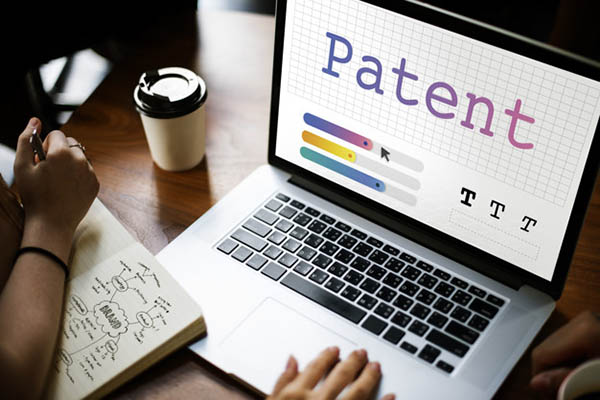 Intellectual Property: The spectrum of quality is the volume of patents within an entire portfolio of patents that are good.
Intellectual Property: The spectrum of quality is the volume of patents within an entire portfolio of patents that are good.
I went to church. I’m a Catholic guy, went to mass and prayed to God, “God, I need some help here.” The next day, the same doctor said I’ll never walk again. A week after, he said, “Art, I’ve never seen anything like this. You’ve been completely healed.” I’m like, “That’s cool. I’m a deal guy so I was praying to God. I said, ‘Tell you what, God. Do hear me and I’ll tell everybody about this.’” I did. I told everybody about this over the next couple of years. That’s my proclamation of God’s inner intercession there and it didn’t sit well with a lot of people. I was a deal guy. He fixed my foot, I’m going to tell the story. Shortly after that, our oldest daughter, Marisa, became sick with the swine flu in the middle of her second pregnancy. If you remember back in October or November of 2009 when that swine flu epidemic came around the world, 41% of young pregnant moms died. My daughter went from, “Dad, I don’t feel too good,” to five days later being on life support and airlifted to University Hospital in Denver. I was in Asia aboard my trip and came back. She was a science project. Finally, they said after a month in there on this, they said we have to unplug her. I’m like, “I’ve got to tell my family about this.”
That night, we discovered St. Gianna Molla, who’s the patron saint of pregnant moms. We prayed to her. She turned in the hospital that night. Her husband and I went there to unplug the next morning. The nurses said, “Don’t touch that dial. She responded inexplicably. No change in medication.” She walked out of the hospital three days later. I’m like, “I made a deal with God.” I started going to daily mass during that month’s period of time praying to God like, “What’s up with this?” I said, “I’m completely at your disposal but if you save my daughter, I will go to daily mass forever.” She saved my daughter, so I go to daily mass. It’s a good thing. Shortly after, people often refer to their businesses as a calling. I got a calling. I’m sitting this on one night. Nobody else around and I hear this voice said, “Art, I need to make patent transactions more efficient around the globe.” Nobody else in the sauna. I’m thinking, “I’m in. I don’t know what I’m doing, but I’m in.” It turns out, we had all of the elements of making the most efficient patent transaction marketplace out there. That is we know the spectrum of quality and everybody’s patent portfolio because it’s exactly the same whether you’re at IBM or AT&T or Bell Labs or Apple or Samsung, the spectrum of quality is exactly the same.
What is a spectrum of quality means?
It means the volume of patents within the entire portfolio of patents that are good. The ones that you could use in a litigation and win. There’s a volume of patents a little bit greater than that that you could use in a negotiation. The vast majority of patents in anybody’s patent portfolio upwards of 85% are commercially insignificant. Good to know but not actually being used in a product that’s making money. None of those patents actually make money at all. Most of the time, in fact, if you look at the statistics here in the United States, less than 2% of all patents anywhere in the world actually make money. That’s a horrible shame. We created a business model that’s very similar compared very favorably to Uber and Airbnb that allows each of these patents to actually make money. That is the PatentBook. A PatentBook is a universally available transaction platform that allows a patent owner to publish their patent to a specific PatentBook for free. They are guaranteed to get income from that because the big companies, these are our traditional customers, the TAEUS customers, the IBMs, AT&Ts, Microsofts and the like, the Qualcomms, Intels and so forth that are deathly afraid. It’s friction in their business for them to get sued for patent infringement. These companies need to and want to use the latest and greatest ideas and inventions, but because there are so many of them, it’s virtually impossible for anybody to negotiate licenses on a one-off basis with every one of those.
In my mind, it would be like developing a pencil sharpener and you developed it in your barn. You have a patent and somebody on the other coast, unbeknownst, have the same pencil sharpener and thinks they have something going on.
It could happen.
It is a mission. They don’t even know.
In fact, there was a joke that I heard in General Council Quarters. They said a very significant company launched a new product and they waited. They had a stopwatch going to how long between the launch of their product to the time they got their first lawsuit. It was under 60 minutes. That’s pathetic. This is a reminder for everyone. A patent is a societal contract between an inventor and the rest of society that says, “Mr. Inventor or Miss Inventor, disclose exactly how you reproduce this invention to us,” so that anybody who’s a person of ordinary skill in the art there can understand what you did and reproduce your invention and society in exchange gives that person a piece of paper that says, “You now own that invention. Thank you for disclosing it. You now own it for a fixed period of time.” That’s twenty years. The first one who came up with that societal construct is China 3,000 years ago. Which is what allowed Chinese society to grow and develop faster than anybody else because there was an incentive in there for people to actually disclose or inventions. When they’re in the public domain, anybody can read that and understand it.
Trust, but always verify things.
For many folks and me, in particular, I’ve got this new lay. I’ve got this new bolt. I’ve got this new screw, a new nail but it’s not physical. It’s a process. It can be a spreadsheet.
The technical definition of what you can patent is, “Anything under the sun invented by man.” The “under the sun” phrase happened to show up in the TAEUS name. That was pure coincidence. I did not look that up. I learned that that was somebody versus Chakrabarty, US patent case.
The valuation of companies has a great deal to do with intellectual property?
80% of the market value of the S&P 500 or the Dow Jones is intellectual property. It’s not plant property.
If you’re a business owner that has a very proprietary process or you have a spreadsheet that absolutely contributes to your bottom line or keeps you from stepping in ditch, there’s a real thought process you should consider whether you should protect your intellectual property.
You should always protect your intellectual property. That is the most valuable asset your company has. Many companies don’t do a good job of that because they don’t understand that. Typical accounting classes show plant property and equipment and stuff you can show up on a spreadsheet. You take a look at the market cap for publicly traded companies and it greatly exceeds the sum of plant property equipment. You say, “What is the Delta?” That is intellectual property. You say, “I’m running a business. I’ve got a restaurant. I’ve got this or that.” The things that are most important to you are your customer list. The deals you have with your suppliers. Who are your suppliers? Your recipes, that kind of information is extremely valuable. That is your company’s intellectual property. You have to secure it appropriately. Otherwise, as we’ve helped some clients here in town, employees come in and they learn all your systems and processes. They leave. The next thing there’s a competitor down the road that is being run by that former employee. It doesn’t matter what paperwork you put into place being in a right to work state and those kinds of things, they are going to compete and it’s very tough to shut them down.
For the folks that are going like, “I need to know more,” how do they find you in social media?
They could take a look at us up on Facebook and take a look at me personally and the TAEUS Corporation and PatentBooks Inc. page on LinkedIn. It’s TAEUS.com and PatentBooksInc.com. PatentBooks is that the real evolution of TAEUS because TAEUS was in a world that was supplying arms as an arms dealer of giving people the ammunition to shoot each other in these patent wars as they were called. In fact, patent wars have caused the demise of many company here in the United States. If you remember two or three decades ago, there was a company called Polaroid. Polaroid and Kodak got into it on patent stuff. They shot each other up. Kodak was wounded but prevailed. It was a mortal wound for Polaroid. Polaroid never recovered.
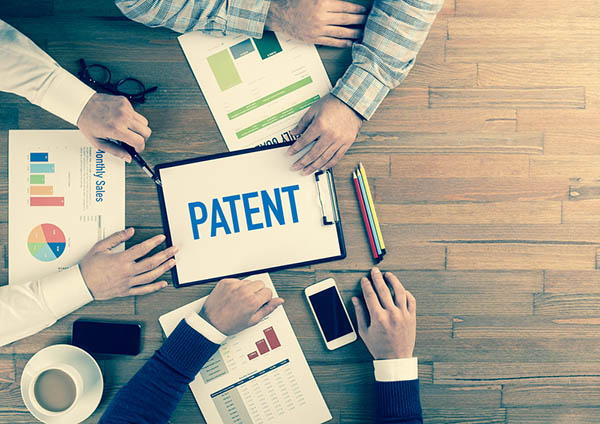 Intellectual Property: Patent wars have caused the demise of many company in the United States.
Intellectual Property: Patent wars have caused the demise of many company in the United States.
You take a look at Samsung and Sharp went at patent infringement things on LCD TVs. Both of those companies will world leaders in the marketplace. That litigation went on for six years. It was started by Sharp adverse to Samsung. They fought each other. TAEUS was involved in that one. Doing the technical investigations, we were on the Samsung side. At the end of that litigation, when it was all settled out, both of those companies were barely in the top ten and a dark horse named Vizio came out of nowhere and killed them in the marketplace. As you know now, Sharp does not exist as an independent company anymore. Sharp was acquired by Hon Hai, a Chinese company.
For PatentBooks, where is it in the evolution of company right now?
It’s very early stages. I thought that with the largest profits from TAEUS that I would be able to start PatentBooks on its own, but that was one of the dramatic stories of TAEUS. I delegated the management of TAEUS to the executive team because I’ve need to focus on PatentBooks. The one thing that PatentBooks has going forward is the TAEUS and my personal reputation for being honest and trustworthy around the world with all the major corporations. In fact, 93 of the top 100 US patent holders have been our customers. They trust us. I had to convert this way of thinking. These people are used to go into court and fighting it out in court. I’m saying, “No, don’t do this. They have more streamlined process.” A PatentBook is nothing more than a single location to pay a subscription price and license all the tens of thousands of patents in that particular technology vertical.
We take that money and distribute it to every single patent owner according to the quality of their patents, so everyone gets paid. That’s a good deal for everybody. There’s no downside. I had to convert this audience who is used to run into court all the time. My clients, IBM, Google, Apple, they’re saying, “Art, this changes everything.” I said, “Let’s go. I need somebody big to lead.” They are like, “It’s too big for us.” This is Apple and Google saying it was too big for them. It was blowing me away and it nearly cost me everything. Meanwhile, I have this wildly profitable consulting company, TAEUS. My employees thought, “Nutter is out here doing crazy stuff,” because I know I’m spending money on these things. It’s not getting traction. In fact, because I heard this voice in the song saying, “Art I need you to make patent transactions more efficient around the globe.” I’m like, “You saved my daughter. I’m walking here after I bit my foot, I’m going to do what you tell me to do.” Is it going to be easy? No. As it turned out, it wasn’t because my executive team at TAEUS tried to take over the company. They ran the company into the ground by not paying bills. I didn’t know that. I trusted them and that was one of the learnings I had.
You were missing the other side of that, which is to verify.
It was a hard lesson. I wish I had paid more close attention to President Ronald Reagan when he was watching the communists, the trust but verify on those things. I didn’t verify as well as I should. Meanwhile, I started getting a little traction. This was the interesting thing. In December of 2015, I put TAEUS into Chapter 11 to save it. That process worked out very well. I had no experience in bankruptcy, but very experienced in it now. We pulled that company out of Chapter 11 two years later. Simultaneous to that, within a week or so, I got a call from Caterpillar out of the clear blue sky. Caterpillar calls them and says, “I see what you’re doing in this PatentBook thing, I’m interested in that.” I’m thinking, “Caterpillar?” I flew out to Caterpillar then we sat down and start talking. It turns out they’re very interested in doing this in autonomous vehicles.
I’m thinking, “Autonomy, that’s self-driving cars,” “Yes, there’s a lot of interest in here.” A lot of people around the world trying to come up with solutions. As societal good self-driving cars would be great because if you take a look at most of the accidents on the roads these days, it’s human error. You take the human factor out of it and theoretically, the volume of accidents in crashes should decrease. We can make our traffic flow much more efficient. That’s going to require tons of people to work together. Caterpillar is a world leader in autonomous vehicles. They’ve been in production for 40 years. These other companies that are carrying the torch of autonomous vehicles like Ford, Chrysler, Google, Apple and so forth, these guys are getting all the press but Cat’s been doing it for 40 years.
You can see it on their blades when they’re doing scrapers on the road. They’ve got the GPS System.
Keep your eyes wide open. Look beyond the current problem and keep going for the big opportunities.
The little LIDAR things spinning around there. They don’t crash. They have to go and navigate their paths where there are no roads. They know how to do this stuff. They said, “We want to contribute our stuff to the rest of the industry in an efficient manner.” They have agreed to publish all of their patents to the Geolocation and Autonomy PatentBook. I’m now encouraging the rest of the people to follow Caterpillar’s lead. The other thing is they said, “They would like to access everybody else’s technologies.” They are willing to license it by subscribing to this PatentBook, which affords all the guys that are doing some little aspect of LIDAR cameras or position sensing or something like this that they’re good at. Caterpillar wants to pay, wants to use that stuff, so that they can compete as effectively as possible in this brave new world of autonomous vehicles. If you take a look at the volume of investment Caterpillars made, it’s hundreds and hundreds of millions of dollars. It doesn’t compare well to $75 billion of investment that everybody else in the world has made. They said, “We’re going to continue to do this. We would assume, do it efficiently and not have to get stuck in court get stuck in court if somebody sues them.
When Cat expressed interest, did you have a #MeToo event where everybody else says, “We want to play?” Are they still dragging it?
They’re still dragging their feet a little bit because I still have to get out because it took me 25 years to get TAEUS up to the position where it is. I don’t have in 25 years in me. I said, “All right,” because TAEUS, I funded with customer money. We have no outside investors, no outside anything. It’s nice to be able to run a company like that. However, I was hoping for the profits from TAEUS to fund PatentBooks. With the distraction in Chapter 11 and so forth, I doubt the profits went poof. I kept it on simmer. I had to do it with best I can with my own personal resources. We have rentals. I had to sell those. I had racked all the credit cards. Frankly, I haven’t had a paycheck in three and a half years. The thing that kept us going is the faith in God and going to mass every single day that allows me to keep focused on this and keep the faith. We started off this discussion thank God, my house burned down.
What’s your favorite book?
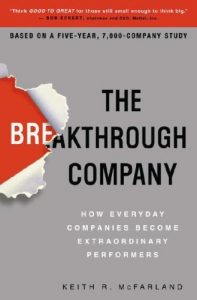 The Breakthrough Company: How Everyday Companies Become Extraordinary Performers
The Breakthrough Company: How Everyday Companies Become Extraordinary Performers
It’s The Breakthrough Company. I read that book and it was about companies that were doing okay, but they wanted to become great. It bridges the gap between Peter Drucker and Doug Collins’ book of Good to Great. It’s about guys that had good companies and became fabulous companies. We read that and did a company-wide book study on using that book. We said, “TAEUS is good, stable, profitable when it’s run there, but let’s commit to something big.”
What did your book study look like when you were trying to do that with this book?
You mean how do I physically do the books?
What did you do?
It was like a college class. I said, “We’re going to read Chapters two and three here and we’re going to discuss them.” I bring in lunch. We discuss them at lunch time. “Who’s the notes?” I would assign a different person in the company to lead the dialogue on that set of chapters there, so that everybody understood. We’d say, “How does this apply to TAEUS and how do we look at this versus PatentBooks?” There are so many good pieces of advice in that The Breakthrough Company book that I encourage everybody to employ and deploy. It was quite successful.
An apparent failure that served you or your company best to set you up for future achievements?
It was the recognition that TAEUS was serving a business that was built on conflict. Qualcomm was one of our big clients. They spent millions of dollars with us as we were reverse engineering a couple of their competitors’ products, Nokia and Broadcom. We did everything that we did. They settled their litigations and the business went to zero because our business was built on conflict. As soon as peace broke out, we didn’t have a business. The normal state of things is not conflict. The normal state of things is peace. If you have a business, it only makes money in conflict, that’s an unhealthy business. I said, “Let’s go look at a better way.” That’s the PatentBooks exist in the peaceful world.
If you can put an ad on page one of a local business paper sharing your message or advice, what would it say and why?
Make money from your patents. Publish them to a PatentBook. It’s free.
Best allocation of time or initiative that’s helped you or your company most?
It’s my morning routine. I go to mass every day. I go to mass no matter where I’m at in the world. Being Catholic makes it easier because there are Catholic churches all around. I got an app on my phone that says, “Mass times.” It picks up your GPS coordinates and tells you what mass times are there, which is cool too because you can watch me on Facebook. You get to see the various churches I popped into. A lot of friends of mine, they’re like, “I saw you were in London last week.” The messages that come forth in the Gospels, this is not new. I feel like I have an unfair advantage over many of my contemporaries because I have listened to the word of God. He’s been around for a long time. His message is open to everybody, but the fact is so many people don’t pay attention to it. It’s right there. I find the things I hear in the daily readings, there’s something in there that I can use every single day whether it’s dealing with personnel issue, a customer issue, an accounting or finance issue, it doesn’t matter. Something on these issues were there every single day.
I was at mass. Oftentimes in my home parish, I get asked to come and do the responsorial song. There was a guy years ago who do the responsorial song. He was singing the responsorial. There’s no music or anything like that. It’s right there. I used to direct a choir years ago and all that, but the responsorial song was, “Those who are victorious, I will feed from the tree of life.” These are tunes and it says, “He is like a tree planted near running water that yields its fruit in due season and whose leaves never fade. Whatever he does, prospers. Those who are victorious I will feed from the tree of life.” You get motivated from this stuff and I was like, “Do trees near running water always have a good time?” No, sometimes wind comes by and thrashes and so forth. I felt I had been thrashed once or twice but it eventually yields fruit this season. I’m hoping the PatentBooks will do that.
Every business should make an impact on the world. Otherwise, it would fizzle out and die.
It comes to my mind on a train ride from Anchorage to Denali. Along the riverbank and the ice break up, the trees along the river, they get hammered.
They get bent over and all that.
Knocks the bark off and it breaks. Being next to the river has its pluses and minuses depending on where you are.
True but they’re still alive. They yield its fruits in due season.
Most unusual habits are what others may consider out of the ordinary that’s helped you most?
Probably going to mass, not too many people do that every day. What’s been inspiring to me is I get up and do commercials for capital campaigns and so forth at the church. I try to point out to people the most important people in any given capital campaign are the little old blue-haired ladies over there praying every single day. The guys that are making the money are useful and all that, but those ladies that are praying all the time, those are the people. Frankly, I became one them. I’m a blue-haired lady, but I’m in there praying and it does seem to help.
Over the past years, what is the belief or protocol that you’ve established in the company that’s most impacted your company?
Faith. Stick with it. Do it with your eyes wide open. Don’t duck your head. Keep your eyes wide open. Look beyond the current problem and keep going for the big opportunities. Don’t swing for the fences all the time. Do not deal with the little things. Don’t let little things distract you.
The advice you’d offer to the new CEO that’s assuming the role of CEO for the first time?
Look what you want to do five, ten years from now. What impact should your company make in the world to make it a better place? Every business should make an impact on the world. Otherwise, it would fizzle out and die.
Most common misconceptions about you or your role as CEO?
I know everything because I don’t know everything. I have major weaknesses and blind spots in finance. Even the things that I say I’m good at even sales and marketing, those kinds of things. I’m learning all the time. You’ve got to learn all the time because you’re kidding yourself. Anytime you think you know everything, you’ll be blindsided.
Over the past few years, what would or should you have said no to and why?
 Intellectual Property: If you have a business that only makes money in conflict, that’s an unhealthy business.
Intellectual Property: If you have a business that only makes money in conflict, that’s an unhealthy business.
I will tell you this, there is an investment that was made by a company out of the UK into PatentBooks. It’s a $100 million investment that all my peers, my board of directors, everybody is telling me that that was a dumb thing to accept. Here we are nearly a year later and the money has not yet shown in my bank account. It was one where I had to put up a bunch of money to make this thing happen. Everybody has told me that that was a dumb thing to do. I remain the sole person who says, “No, this is a fine thing to do and it will happen as it was originally described.” While the rest of the world thinks that I’m wrong on this one, I don’t think I’m wrong. That’s a different way of answering your question, but sometimes I’m stubborn like that.
In the day-to-day operations of your company as CEO, a personal habit or self-talk that keeps you and the company focused?
Going to mass. That’s the one.
A quote that you like to use or one that’s meaningful?
This is one I got from my dual years at the Air Force Academy. George S. Patton says, “Never tell somebody how to do something. Tell them what to do and they will amaze you with their ingenuity.” I find that to be true across the board. I talk to my web guys. I say, “I need to have a web page that does this and this and this, and that’s what to do.” I let them figure out the best way to do it. Operationally, as I’m adding personnel, the organizational structure in the corporate organization. These are things that we have to pay attention to as we as we navigate the world of international law, international tax and so forth. My customer base is global and certainly not isolated to Colorado Springs. In fact, I’m hard pressed to think any customers I have here in Colorado Springs much less the state, but they are an international customer base. I got to pay attention to all those things.
If I was to talk to your colleagues and ask them what you’re best at, what would they say and how do you utilize that strength on a day-to-day?
Sales. These people will say I can sell things like ice cubes to Eskimos, that kind of thing. I don’t know that I do that necessarily. What I say is I try to listen. I try to listen to people’s problems and to help them solve their problems. My wife will reiterate that as well. She says I fix things. If she finds things, I fix things.
“Thank God, my house burned down,” let’s circle back and finish up with that story.
As I told you, TAEUS went into hard times, Chapter 11. I stopped taking a pay check back in July of 2015. I had to keep TAEUS going. Thank God, my kids who had grown up with TAEUS stepped up and said, “Dad, we’ll help.” Chips off the old block. I had some sons step up in sales. My daughter, who is captain of the US Army, had discharged from there. She had good manager skills. She comes in operations, but the company still wasn’t making money. My former employees going out and actively tried to discourage people from doing business with TAEUS. They say, “TAEUS doesn’t have any engineers. They are just Nutter’s kids.” What they didn’t know is they poked this bear and make sure we did it. Long story short, I’m out of money. I’m maxed out on credit cards. This June 2018, I’m out of money. I have my utilities shut off notices. The red paper comes in says, “You will be shut off on such and such date.” I had no money by which to pay the mortgage that month and all my credit cards maxed. I couldn’t rob Paul to pay Peter because there was nobody else to rob. I go to a Eucharistic adoration at [3:00] in the morning. It was just me and God.
I didn’t know they were open that early.
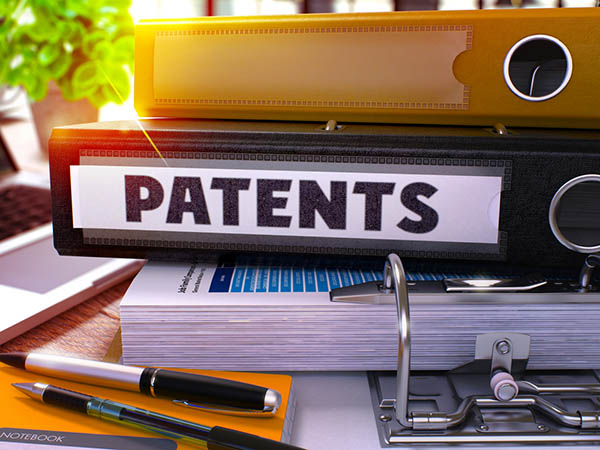 Intellectual Property: PatentBooks is the Uber and the Airbnb of patents.
Intellectual Property: PatentBooks is the Uber and the Airbnb of patents.
They’re 24/7. There’s a code on the door. You punch in the code and you go in there. It’s nice because it’s me and Jesus sitting there talking real close, real intimate. I’m saying, “God, I don’t know what I’m going to do.” I have this ranch in Southern Colorado. It is 100 and somewhat acres with a beautiful house, executive retreat. I figure all this other stuff in Colorado Springs going to hell in the handbasket. I still have that respite. We got them completely in your hands. I leave that. I have an even with Caterpillar on the line. Other people are coming on with both PatentBooks. Nobody signed yet, but I’m out of money. What am I going to do? My house burned down that day. The spring fire came through. I went down there on the 20th of June and the house burned completely to the ground. I’m like, “I have no safety net. I have nothing now. God, I’m completely at your disposal.” I kept going back to adoration and that was the turn around. That was the turning point when I had to put myself entirely in our Lord’s hands because there was nothing I could do. I’m a power and control guy. I had no power or control over anything. He says, “I got you.”
On July 18th, Caterpillar signed. Towards the end of July, we got $1 million check from the insurance company for that. That allowed me to pay off the credit cards. In fact, I checked my credit rating before I came down here, my credit rating is the 800s, but it was down in the low 600s, bounce around the 500s around there. It was because I was able to pay off everything that put money into all the accounts. The TAEUS business, the kids have finally gotten a good traction in here. They’re knocking down in the neighborhood of $150,000, $200,000 a month. Good profit margins. We’re paying back all the creditors. We’ve got a little bit of money now to go out and push PatentBooks even further. I was able to buy airplane tickets to London. I took our investors to the task I said, “Everybody is telling me that you guys are flakes and I’m looking you in the eye and saying, you’re not flakes. Make sure you make me honest on this one.” They said, “We’re coming through.” They reemphasized and reiterated that they are there.
I was in Dublin, Ireland and I met with the heads of the European Patent Office, the European Patent Academy, and the Licensing Executives Society of UK and Ireland. They said, “Art, PatentBooks is the Uber and the Airbnb of patents.” We are indeed providing an opportunity for every single patent like everybody who has a car sitting in the garage and anybody who has spare rooms in their house. Being able to put those into the marketplace and find a buyer for those. We’re doing that in the world of patents, which we think will enable more inventors because they get compensated for their inventions via their patents to invent more. The innovators when they know that they won’t be sued for using other people’s ideas and inventions, that they will innovate more and will have more frequent product generations, shorter design cycles. This will be the economic stimulus that the world truly needs.
Art, I can’t tell you how much I appreciate you coming in and sharing your story and your wisdom and your faith.
Thank you, Bob. It’s a blessing to be here.
Links Mentioned:
- https://TAEUS.com
- https://PatentBooksInc.com/
- PatentBooks
- TAEUS
- PatentBooks Inc. on LinkedIn
- The Breakthrough Company
- Good to Great
About Art Nutter
 I am a decisive visionary who thrives on taking risks by challenging the status quo. I am persistent in my execution, and and am passionate about helping others achieve their goals. I am here to serve others, especially the less fortunate, by leading them to understand how much they themselves can achieve by utilizing all the gifts God has given them.
I am a decisive visionary who thrives on taking risks by challenging the status quo. I am persistent in my execution, and and am passionate about helping others achieve their goals. I am here to serve others, especially the less fortunate, by leading them to understand how much they themselves can achieve by utilizing all the gifts God has given them.
I’ve worked in big companies, and did not fit in. After having 6 employers in 9 years, with my wife in tears, and five little kids at home saying “Feed me!” I decided to start my own company, with no outside investment. We now have 8 kids and 6 grandkids. My most successful company, TAEUS, is now 25 years old, and provides services to inventors, companies, and governments around the world.
I have been the beneficiary of multiple Eucharistic miracles. God has my attention, big time. I am here to help others understand that when we share the gifts God has given us, we all benefit – beyond our wildest dreams.
I love to create and build things. I built global businesses, an off the grid home in the mountains that holds our large family, and now am responding to God’s call to “make patent transactions more efficient around the globe.
Love the show? Subscribe, rate, review, and share!
Join the Business Leaders Podcast Community today:
- businessleaderspodcast.com
- Business Leaders Facebook
- Business Leaders Twitter
- Business Leader LinkedIn
- Business Leaders YouTube
The post How To Protect Your Intellectual Property with Art Nutter appeared first on My podcast website.